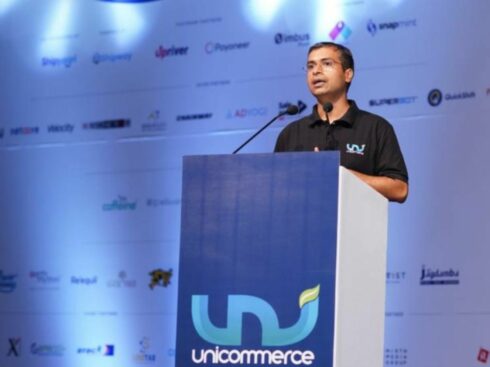
SUMMARY
India’s Investors Must Realize That The Best Opportunities Are Not In Silicon Valley But At Home
Walmart’s acquisition of Flipkart has created shockwaves in India, with the realization that the vast majority of its $16 Bn price will go to foreign investors, namely Tiger Global, SoftBank, Naspers, and Accel Partners. Now Indian investors are kicking themselves for missing out on the largest e-commerce exit ever.
But they have no one to blame but themselves: Flipkart tried very hard to raise money locally but was ridiculed and turned away, leaving it only the foreign giants to rescue it.
This pattern will repeat itself until India’s investors realize that the best opportunities are not in Silicon Valley but at home. Frankly, I sympathize with Flipkart founders Sachin and Binny Bansal, because I too have seen the Indian inferiority complex at work.
In a talk I gave at INK India in 2014, I predicted that a billion Indians would be gaining Internet connectivity through their smartphones within a few years, and that this would begin to transform the country. Tens of thousands of startups building health sensors, robots, drones, and commerce and infrastructure tools, and hundreds of thousands of application writers addressing local problems, could solve not only India’s problem, but those of the world.
I also tried educating the executives of Wipro and Infosys. When they told me of the huge funds they were setting up to invest in Silicon Valley, I warned them that no one there cared for their companies or investments; at best, they would be offered bottom-of-the-barrel deals and be left chasing rainbows. And that is largely what has happened.
I live in Silicon Valley and am a professor, not an investor. I did, however, get involved with one Indian startup, because it had world-changing potential yet was dying on the vine. Indian investors ridiculed the notion that something of such magnitude could emerge from India; all they did was waste the time of the founders.
The company, HealthCubed, develops a compact medical-grade device that provides more than 40 measures and tests, including blood pressure, electrocardiography, blood oxygenation, heart-rate variability, blood sugar, blood hemoglobin, and urine protein, and is able to diagnose diseases such as HIV AIDS, syphilis, dengue fever, and malaria. These are the same tests that labs and hospitals provide — but for less than one hundredth of their cost in the U.S.
Simply having the lab results immediately constitutes a huge benefit in a rural health clinic. Additionally, the data can be immediately uploaded to the cloud, allowing for rapid evaluation by a remote physician. And analysis of the bounty of data thus collected will enable fresh insights into many conditions.
I rarely have a problem getting Indian executives and VCs to return my emails. Yet when I wrote to them about HealthCubed, most didn’t even respond (this is a common problem in India: rather than saying no, people just don’t respond). Ironically, the investors who did write back said that valuation of the company was too high — without even asking what it was.
So I gave up on India and advised HeathCubed CEO Ramanan Laxminarayan to register the company in Delaware and move the intellectual property to the U.S. Then I invested my own savings in the company and joined the board. James Doty, M.D., a world-renowned neurosurgeon and entrepreneur who founded Stanford University’s Center for Compassion and Altruism Research and Education, did the same. He found the technology to be more advanced and more effective than anything he had ever seen.
Acumen, a New York–headquartered impact investment fund, also invested in the company, as did American moguls Ray Dalio, Ross Perot Jr, Bridget Koch, and actress Sela Ward and her VC husband Howard Sherman. One of Silicon Valley’s most respected investors, Raju Reddy, and an alumnus group from Indian university BITS Pilani also readily supported the company.
The product now helping hundreds of thousands of villagers in more than a hundred districts of four states of India, thanks to the Aditya Birla group. The world’s largest NGO, BRAC, is using it to improve health and create employment in hundreds of villages in Bangladesh. Tens of thousands of Rohingya refugees in U.N. clinics outside the borders of Myammar are being diagnosed with it. And it is now set to roll out in Ghana, Senegal, and Nigeria.
I expect that by the end of 2019, HealthCube will have done more than 100 million diagnostic tests; and that eventually products such as this will disrupt the U.S. health-care system itself and will quickly spread throughout the Americas — and that India’s VCs will have another cause for regret.
That’s not to say Indian entrepreneurs shouldn’t take some of the blame. As Silicon Valley’s Hemant Kanakia said to me in an email: “Part of the problem I have observed while being an investor in Indian startups in last six years is that Indian entrepreneurs have a short-term outlook, they want to make money and live the lifestyle of the rich. Sachin Bansal had no ambition like founders of China’s Tencent or Baidu have — of conquering the world.”
Yet even Silicon Valley was like this when its ecosystem was in its infancy. I’ll bet that as a generation of founders such as the Bansals achieve great success, they too will develop grand ambitions.
[This post appeared first on wadhwa.com and has been reproduced with permission.]


























